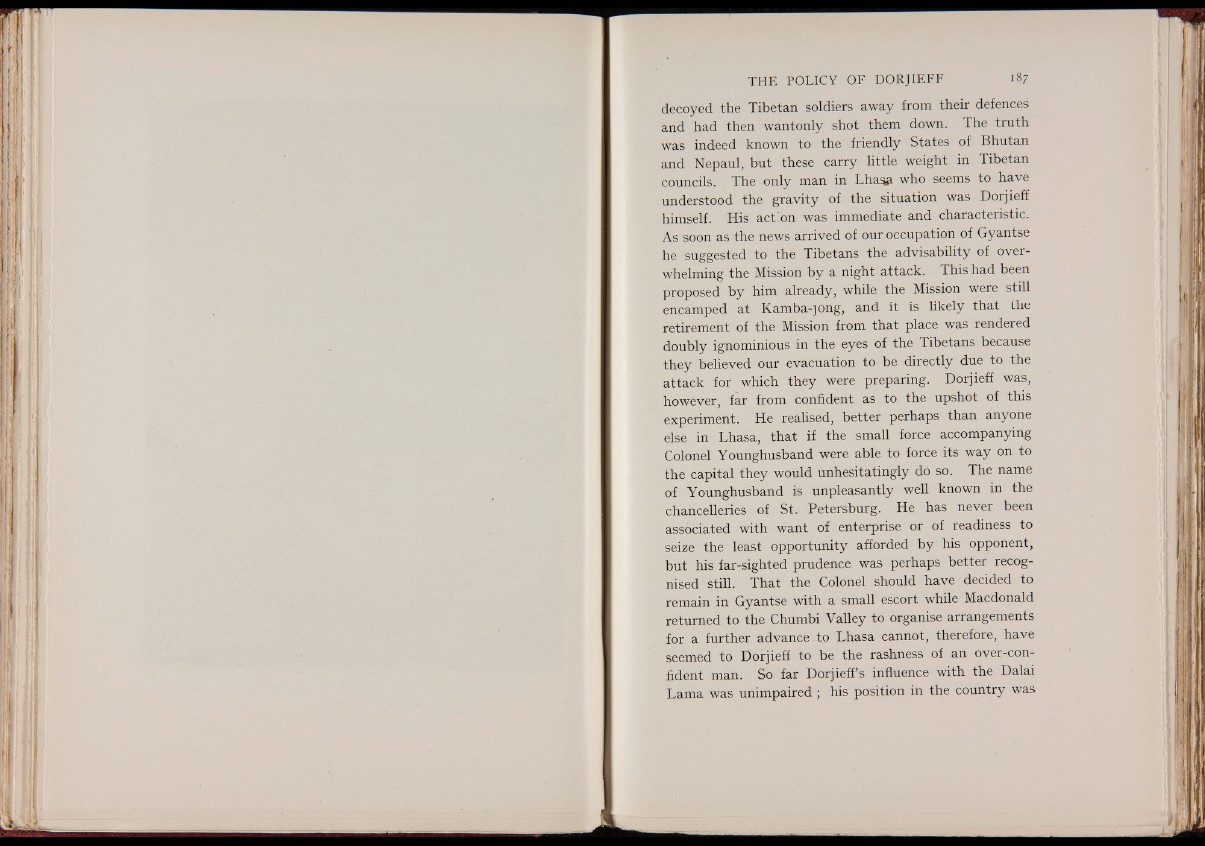
decoyed the Tibetan soldiers away from their defences
and had then wantonly shot them down. The truth
was indeed known to the friendly States of Bhutan
and Nepaul, but these carry little weight in Tibetan
councils. The only man in Lhag*i who seems to have
understood the gravity of the situation was Dorjieff
himself. His act-on was immediate and characteristic.
As soon as the news arrived of our occupation of Gyantse
he suggested to the Tibetans the advisability of overwhelming
the Mission by a night attack. This had been
proposed by him already, while the Mission were still
encamped at Kamba-jong, and it is likely that the
retirement of the Mission from that place was rendered
doubly ignominious in the eyes of the Tibetans because
they believed our evacuation to be directly due to the
attack for which they were preparing. Dorjieff was,
however, far from confident as to the upshot of this
experiment. He realised, better perhaps than anyone
else in Lhasa, that if the small force accompanying
Colonel Younghusband were able to force its way on to
the capital they would unhesitatingly do so. The name
of Younghusband is unpleasantly well known in the
chancelleries of St. Petersburg. He has never been
associated with want of enterprise or of readiness to
seize the least opportunity afforded by his opponent,
but his far-sighted prudence was perhaps better recognised
still. That the Colonel should have decided to
remain in Gyantse with a small escort while Macdonald
returned to the Chumbi Valley to organise arrangements
for a further advance to Lhasa cannot, therefore, have
seemed to Dorjieff to be the rashness of an over-confident
man. So far Dorjieff’s influence with the Dalai
Lama was unimpaired ; his position in the country was